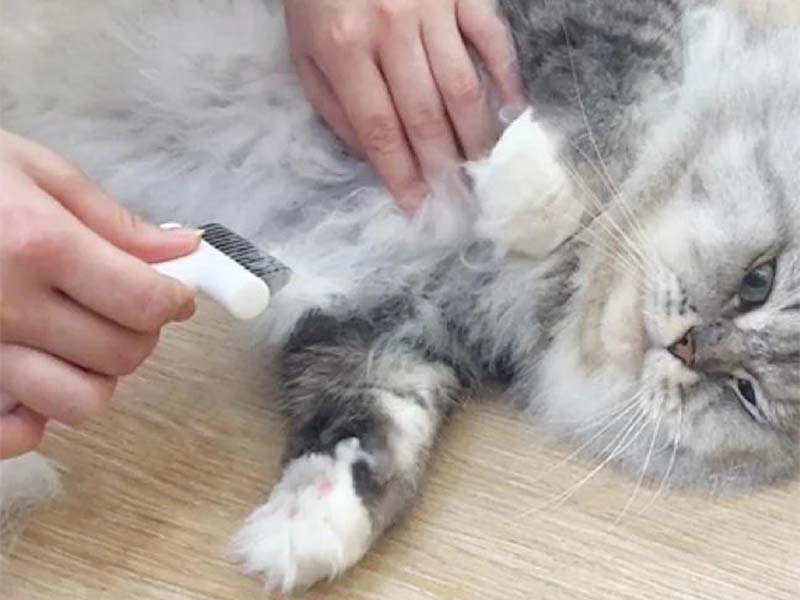
If your cat keeps going to the litter box very often, stays there a lengthy time, but only passes a little urine, pay shut attention. Your cat might have a urinary blockage. This is a serious issue, specifically frequent in person cats over one year old. Both male and lady cats can get it, however male cats are at greater risk because their urethras are narrower .
🔴 Key Symptoms of Urinary Blockage
Watch for these 9 signs:
Frequent trips to the litter container.
Long time straining in the box, with little or no outcomes.
Urine clumps are smaller and greater severa.
Crying or whining while attempting to pee.
Peeing backyard the litter field.
Blood in the urine.
Not liking having its stomach touched . The decrease belly may additionally sense association or swollen because the bladder is full.
Licking the genital place excessively.
Vomiting . This is a serious signal that the condition is getting worse.
⚠️ Serious vs. Mild Cases
Serious Case (Get Vet Help Now!): If your cat has not passed any urine for over 24 hours, and you can sense a firm, swollen blob in its lower stomach (like a small balloon), this is an emergency. Go to the vet immediately. A full blockage can cause kidney failure and is life-threatening.
Mild Case (Watch Carefully): If your cat is nonetheless passing some urine, even a little, the scenario may be less critical. You can try management at home. But you have to watch your cat closely. If there is no improvement within a day, or if matters get worse, see a vet.
❓ Why Does This Happen?
Main motives include:
Not consuming sufficient water. This is the most common cause. It makes the urine concentrated, which can lead to crystals that block the urethra.
Stress or fear. Changes in the home, loud noises, or other stressors can cause the bladder to end up inflamed.
Diet. Some dry meals can make contributions to excessive urine pH or comprise high ash content, growing the danger of crystals forming.
🐾 How to Help Your Cat
To assist your cat avoid urinary problems, you can:
Feed a eating regimen that supports urinary health. Some foods encompass elements like cranberry, which can be really useful for the urinary tract.
Increase water intake. Add water to your cat’s wet food, use a pet water fountain, or provide water in wide, shallow bowls. Some cats opt for drinking from shiny containers like metal bowls.
Keep the litter box easy and region it in a quiet spot. Scoop it daily and put it where your cat feels safe and private. Don’t watch your cat while it makes use of the field.
Reduce stress. When introducing new people or pets, do it slowly. Give your cat a quiet area to hide if wished.
Encourage play and exercise. Play with your cat for about 15 minutes daily. This helps hold a healthful weight and suitable intellectual kingdom.
Schedule every year vet check-ups. For cats with a history of urinary issues, tests like a bladder ultrasound or urinalysis are vital.
If you see any warning signs, act quickly. Always speak to your vet for advice tailor-made to your cat’s precise fitness needs.
